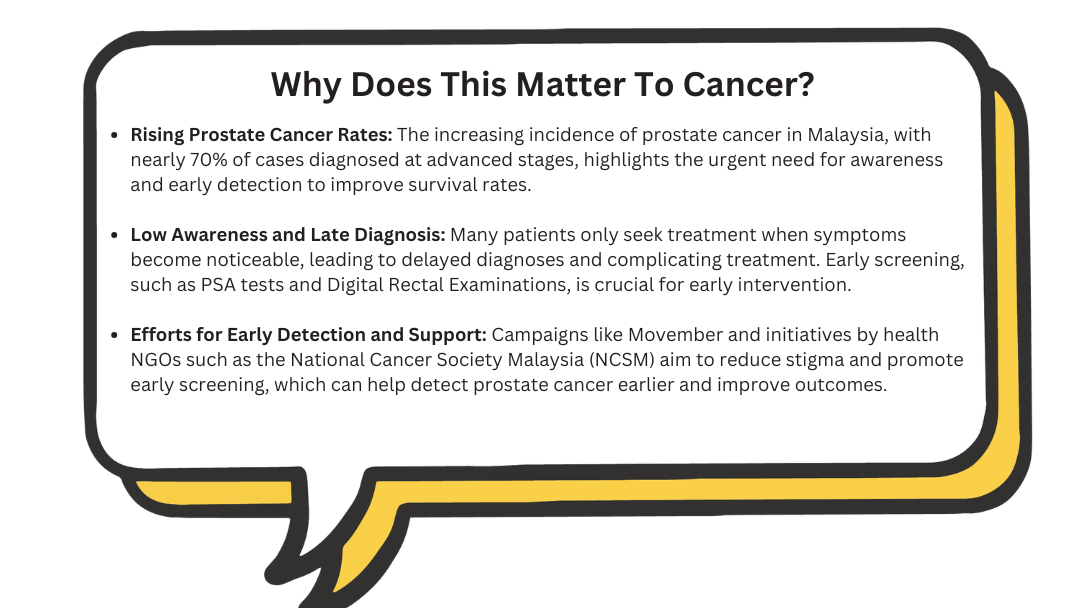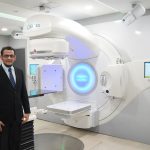Incidence rate of prostate cancer among Malaysian men has increased in 2021 to 9.3 compared to 7.7 in 2016 for every 100,000 men in the country, according to latest National Cancer Registry Report 2017-2021.
Also known as the “silent” cancer, prostate cancer poses a serious health dilemma to Malaysian men, with 1 in 83 at risk in the past five years. As the third most common cancer among men, its late diagnosis is concerning, with nearly 70% of cases detected at advanced stages, reducing survival chances.

Colorectal and lung cancers are the top two most common cancers among Malaysian men as per the latest reporting, unchanged from the previous registry reporting of 2012-2016.
Observational data from Global Cancer Observatory (GLOBOCAN) predicted that cancer cases in Malaysia including prostate cancer will continue to rise in the next decades.
The Ministry of Health allocated RM100 million in the 2025 budget in the continuous effort to fight against cancer, coupled with the National Strategic Plan for Cancer Control Programme (NSPCC) covering a 5-year plan from 2021-2025.
Low awareness for early screening is a major contributing factor to patients who come to a late stage of cancer. Patients present themselves once symptoms of disease are prominent, says a representative from Ministry of Health Malaysia. This further complicates the treatment and lowers the chance of survival from the disease.
Early symptoms of prostate cancer are commonly asymptomatic and can be detected through PSA blood test. Screening with PSA often coupled with physical examination called Digital Rectal Examination (DRE) to examine any abnormal enlargement of the gland.
In many countries including Malaysia, campaign such as Movember helps to reduce the stigma surrounding the disease. The campaign encourages men to get early screening for their health including prostate cancer screening.
Health NGOs such as National Cancer Society Malaysia (NCSM) are actively conducting community outreach through their initiatives so that more men could get checked early and reduce the risk of prostate cancer.





